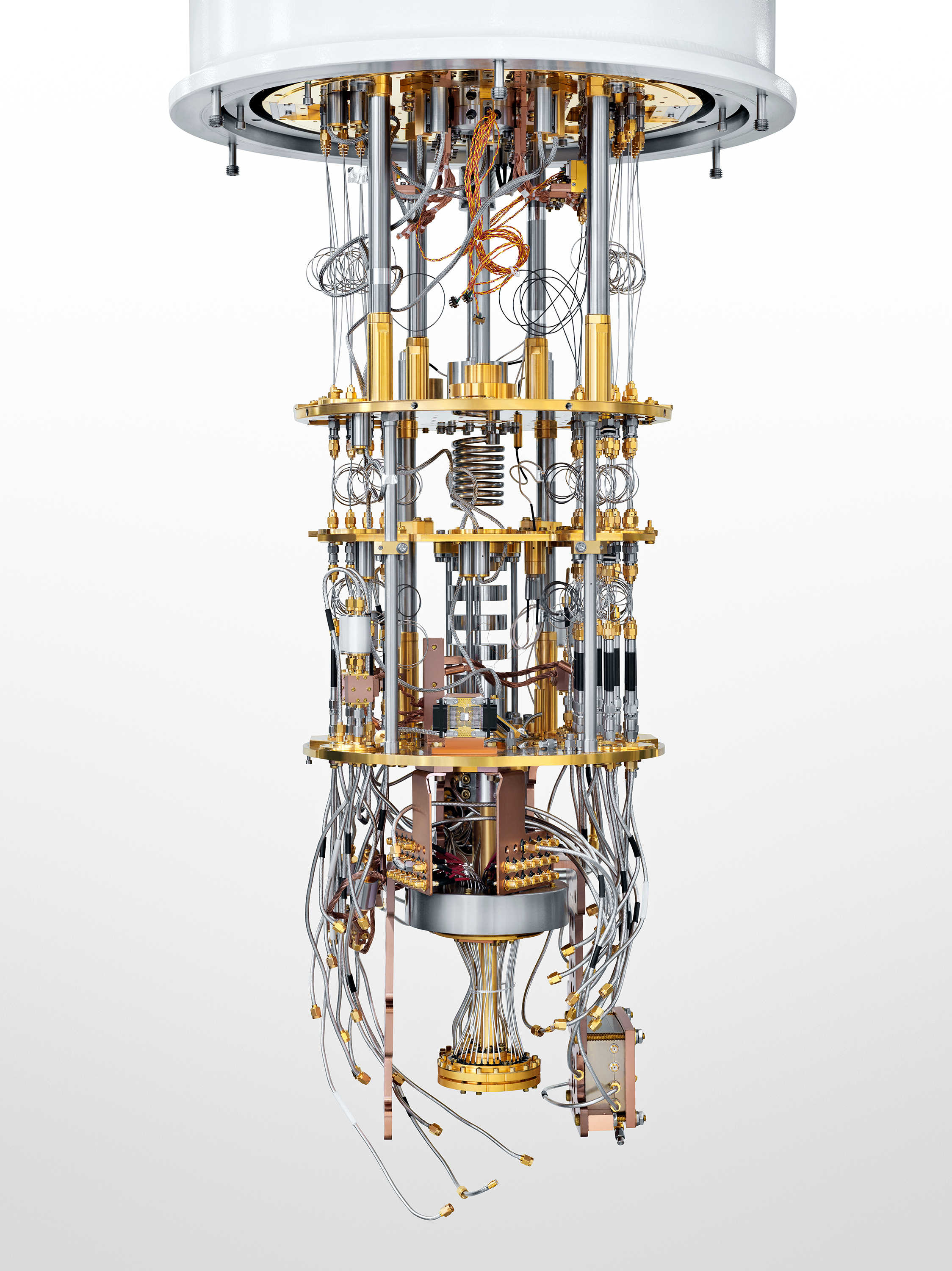Quantum Computing
The above complicated looking image is that of a Quantum Computer.
Quantum computing is a new field that is based on the principles of quantum mechanics. While classical computers use bits that can be either 0 or 1 to store and manipulate data, quantum computers use quantum bits or qubits, which can exist in a superposition of both 0 and 1 states simultaneously. This property of qubits allows quantum computers to perform certain types of calculations much faster than classical computers.
But how exactly do quantum computers work? In this blog post, we'll take a closer look at the key components of a quantum computer and how they work together to perform quantum computations.
Qubits
As mentioned earlier, qubits are the basic building blocks of a quantum computer. They are similar to classical bits in that they can store and manipulate information, but they have the added property of being able to exist in a superposition of both 0 and 1 states simultaneously.
There are many different ways to implement qubits in a physical system, including using the spin of an electron, the polarization of a photon, or the energy levels of an atom. Whatever the implementation, the key is to be able to manipulate the qubits in such a way that they can perform quantum computations.
Quantum Gates
In order to manipulate qubits, quantum computers use quantum gates, which are the quantum equivalent of classical logic gates. Just like classical logic gates, quantum gates can be combined in various ways to perform different types of computations.
One of the most basic types of quantum gates is the Hadamard gate, which is used to create superpositions. It takes a qubit that is in the 0 state and puts it into a superposition of both 0 and 1 states. Another important quantum gate is the CNOT gate, which is used to create entanglement between two qubits.
Quantum Algorithms
Of course, the key to quantum computing is not just the hardware, but also the software. Just like classical computers, quantum computers can run different algorithms to solve different types of problems.
One of the most famous quantum algorithms is Shor's algorithm, which is used to factor large numbers into their prime factors. This algorithm is much faster than any known classical algorithm, and has important implications for cryptography and cybersecurity.
Another important quantum algorithm is Grover's algorithm, which is used to search through unsorted data much faster than classical algorithms. This algorithm has applications in data mining and optimization.
Challenges and Future Developments
While quantum computing holds great promise for solving certain types of problems much faster than classical computers, there are still many challenges to overcome. One of the biggest challenges is the issue of quantum decoherence, which is the tendency of qubits to lose their coherence over time due to interactions with the environment.
Another challenge is the difficulty of scaling up quantum computers to a large number of qubits. While there are currently quantum computers with a few dozen qubits, it is unclear whether it will be possible to scale up to the thousands or millions of qubits that would be needed to solve many important problems.
Despite these challenges, there is significant research and investment in the field of quantum computing and the future seems very exciting with this rapidly evolving field!


Comments
Post a Comment